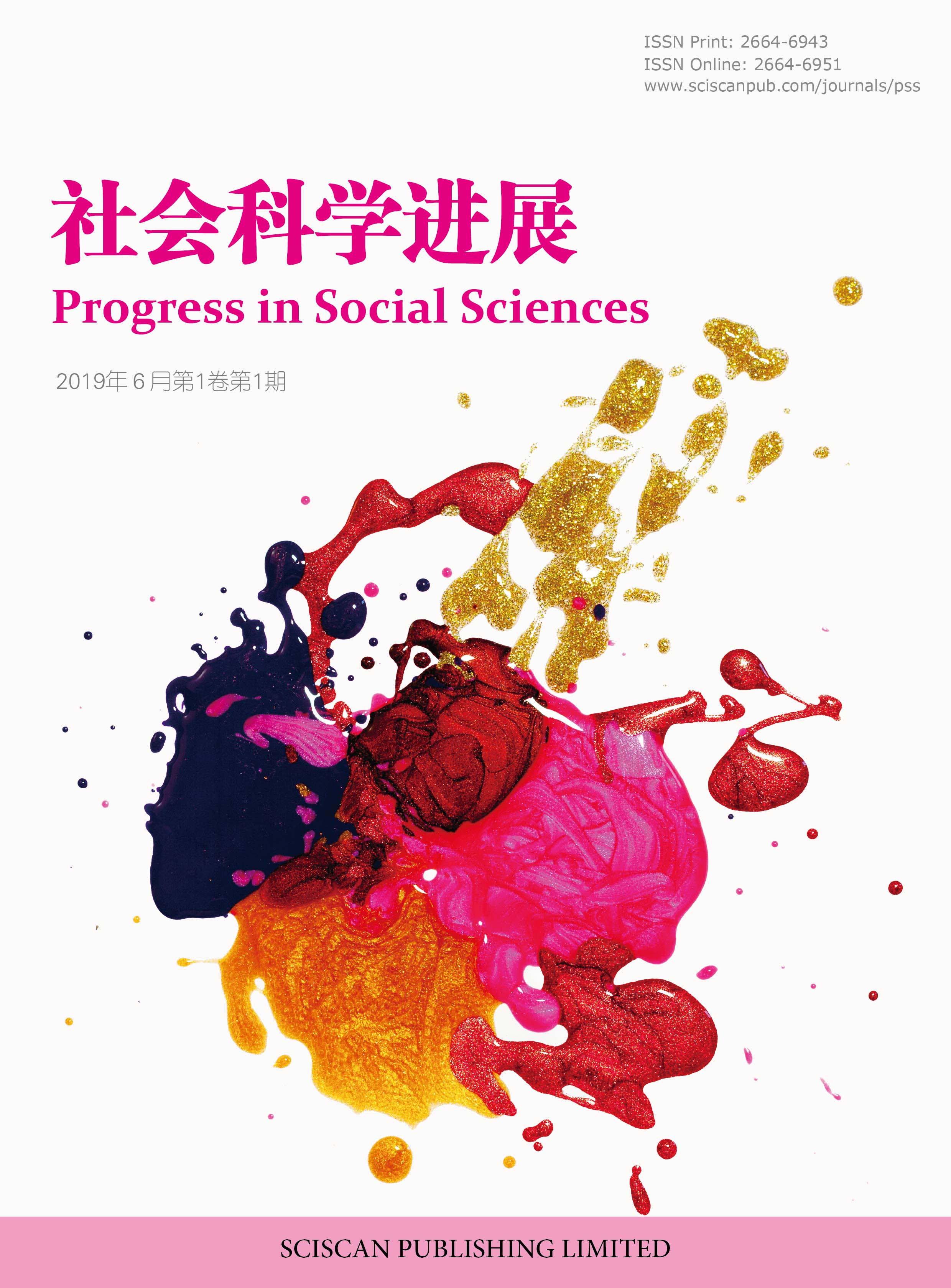Progress in Social Sciences
生成式AI在服务业营销场景的应用特征与挑战
Application Characteristics and Challenges of Generative AI in Service Industry Marketing Scenarios
- Authors: 曾育新 覃艳华 陈纯炼
-
Information:
电子科技大学中山学院管理学院,中山
-
Keywords:
Generative artificial intelligence (AIGC); Service marketing; Human-AI collaboration; Cultural adaptation; LEAF model; Data security; Empathy gap; Value co-creation生成式人工智能(AIGC); 服务营销; 人机协同; 文化自适应; LEAF模型; 数据安全; 共情鸿沟; 价值共创
- Abstract: Generative Artificial Intelligence (AIGC) is profoundly reshaping the value creation paradigm in service marketing. Grounded in Service-Dominant Logic (S-D Logic), this study systematically analyzes AIGC’s application characteristics across three core service marketing scenarios: Intelligent Interaction: Constructing a human-AI-customer triadic collaboration system (Guo, 2025) to enable seamless service delivery. Content Creation: Achieving scalable personalized service (Bai & Guo, 2024) through dynamic content generation. Customer Insight: Empowering data-driven decision-making for precision marketing. These applications significantly enhance marketing efficiency, personalization, and experiential quality. Concurrently, the study identifies critical inherent tensions in localized AIGC implementation: Technology-Trust Tension: Data security risks and algorithmic black-box opacity undermining accountability (Zhang & Chen, 2025; Chen & Li, 2025). Efficiency-Empathy Tension: The “empathy gap” in human-AI interaction, particularly detrimental in high-touch service recovery scenarios (Li & Zheng, 2024). Globalization-Localization Tension: Cultural misfit due to inadequate adaptation of global models to local contexts (e.g., Chinese cultural nuances) (Wang & Wang, 2025). To address these challenges, we propose the innovative Lightweight-Embedded-Adaptive-Forward-feeding (LEAF) Model: Lightweight Technology (L): Prioritizing API integration (e.g., Baidu, Alibaba, Tencent, DeepSeek) for cost-effective access. Embedded Processes (E): Structuring workflows (e.g., “AI triage + human expert”, “AI draft + human refinement”) for genuine human-AI collaboration. Adaptive Culture (A): Implementing prompt engineering and localized fine-tuning to embed cultural intelligence. Forward-feeding Mechanism (F): Establishing a data-driven feedback loop (collection → structuring → model optimization) for continuous improvement. The LEAF model provides a strategic pathway for local service enterprises, especially resource-constrained SMEs, to implement AIGC responsibly, efficiently, and cost-effectively, offering significant theoretical and practical contributions. 生成式人工智能(AIGC)正深刻重构服务业营销的价值创造范式。本文基于服务主导逻辑(S-DLogic),系统分析AIGC在智能交互、内容创生与客户洞察三大核心场景的应用特征:通过构建“人—机—客”三元协同体系(郭蕾蕾,2025)、实现规模化个性化服务(白雪梅,郭日发,2024)、赋能数据驱动决策,显著提升营销效率与体验。同时,深入剖析本土化应用的内在张力:技术与信任矛盾(数据安全与算法黑箱风险)(张亮,陈希聪,2025;陈嘉鑫,李宝诚,2025)、效率与情感冲突(“共情鸿沟”)(李森,郑岚,2024)、全球化与本土化失衡(文化适配性缺失)(王闻萱,王丹,2025)。针对挑战,创新性提出“服务营销AI轻量化敏捷(LEAF)模型”,以技术轻量化(L)控制成本、流程嵌入化(E)协同人机、文化自适应(A)弥合文化差异、反馈前馈化(F)驱动动态优化。该模型为本土服务业企业(尤其中小企业)提供了低成本、高效率、负责任的AIGC战略实施路径,兼具理论创新与实践指导价值。
- DOI: https://doi.org/10.35534/pss.0707096
- Cite: 曾育新,覃艳华,陈纯炼.生成式AI在服务业营销场景的应用特征与挑战[J].社会科学进展,2025,7(7):566-572.
1 引言
1.1 研究背景与问题提出
生成式人工智能(AIGC)作为技术驱动的结构性变革核心引擎(张夏恒,马妍,2024),正深刻重塑产业逻辑与价值创造范式。服务业因其固有的无形性、异质性、同步性与易逝性(IHIP特性),成为AIGC应用潜力巨大的领域(白雪梅,郭日发,2024)。AIGC能以规模化方式提供高度个性化信息与交互,为克服传统服务业挑战、提升客户体验与运营效率提供了革命性方案。
在服务营销领域,AIGC应用已从概念探讨走向场景落地。无论是智能客服、千人千面的营销文案生成,还是深度用户分析构建精准客户画像,AIGC正全方位渗透客户旅程触点,推动服务营销从传统的“人—客”二元互动向更高效的“人—机—客”三元协同范式演进(郭蕾蕾,2025)。然而,当前学术与产业讨论存在局限:现有研究或聚焦AIGC技术的宏观展望,或散见于特定场景(如图书馆、教育、B2B直播)的案例分析(张鹏,刘玉成,2025;刘璐,2024),尚缺乏一个植根于服务营销理论(尤其是服务主导逻辑S-D Logic)的系统性分析框架,以深入剖析AIGC在服务营销场景中的独特应用特征、深层次本土化挑战及企业战略应对体系。
基于此,本文旨在回答以下核心研究问题:AIGC在服务业营销核心场景中呈现哪些独特应用特征与价值?当AIGC技术(特别是国产模型)应用于具有鲜明文化特征的本土市场时,面临哪些关键内在张力与挑战?服务业企业(尤其是资源有限的本土中小企业)应如何构建低成本、高效率且负责任的战略框架以驾驭AIGC的机遇与风险?
1.2 研究意义与结构安排
本研究意义体现在理论与实践两个层面。
(1)理论意义
①结合前沿AIGC技术与经典服务营销理论(S-D Logic),为数字时代价值共创提供新视角;②构建服务营销场景的AIGC应用特征分析范式;③创新性提出“服务营销AI轻量化敏捷(LEAF)模型”,提供兼具理论解释力与实践指导性的战略框架。
(2)实践意义
为中国企业(特别是中小企业)应对AIGC应用中的数据安全(张亮,陈希聪,2025;陈嘉鑫,李宝诚,2025)、文化适配(王闻萱,王丹,2025)与情感交互(李森,郑岚,2024)等多重挑战提供清晰行动指南。强调技术轻量化和文化自适应的LEAF模型,有助于企业在控制成本、规避风险基础上最大化AIGC营销效能。
本文结构如下:第二部分综述服务营销理论与生成式AI相关研究;第三部分系统分析AIGC在服务业营销三大核心场景(智能交互、内容创生、客户洞察)中的应用特征与价值;第四部分深入剖析其本土化应用面临的内在张力与核心挑战;第五部分构建并阐述“LEAF模型”;第六部分总结全文并指出局限与展望。
2 文献综述与理论基础
AIGC在服务营销领域的应用并非简单的技术叠加,而是对理论范式与商业实践的深度重构。本研究理论基础根植于服务营销理论的演进,并借鉴AIGC在相关领域的跨学科研究成果。
2.1 服务营销理论的演进:从交易导向到价值共创
传统服务营销理论致力于解决服务的无形性、异质性、同步性及易逝性(IHIP)挑战。早期以4Ps为核心的交易营销,将服务视为特殊产品,强调标准化与效率。随着竞争加剧与消费者角色变迁,以企业为中心的“产品主导逻辑”(Goods-dominant Logic)解释力不足。
瓦戈与勒克斯(Vargo & Lusch,2004)提出的服务主导逻辑(Service-Dominant Logic,S-D Logic) 提供了深刻的理论视角。其核心在于:价值并非企业单方面创造传递,而是在互动中共同创造(Value Co-creation)。企业提供价值主张(Value Proposition),顾客则整合自身资源(知识、技能等)参与其中。
S-D Logic为理解AIGC在服务营销中的角色奠定基础。在此框架下,AIGC超越被动执行的“操作数资源”(Operand Resource),演变为主动参与价值创造的“操作性资源”(Operant Resource)。它能整合企业与顾客资源(如分析用户输入、调用知识库),动态生成新方案,成为价值共创中不可或缺的智能化第三方,深化资源整合与互动,拓展价值共创的可能性与效率。
2.2 生成式人工智能:从技术工具到营销“合伙人”
生成式AI基于大规模语言模型(LLMs),通过海量数据预训练获得强大内容生成、逻辑推理和情境理解能力,创造出类人的文本、图像等。其“生成性”使其从被动“数据分析器”转变为主动“内容创造者”和“对话参与者”。
研究揭示了AIGC作为赋能工具的潜力。白雪梅与郭日发(2024)指出,AIGC核心能力在于实现大规模个性化服务,精准响应个体需求。郭蕾蕾(2025)在教育领域提出,AIGC正推动“师—生”二元互动向“师—机—生”三元协同范式转变。这一洞见预示服务营销中,传统“企业-顾客”关系将被重塑为更动态的“服务人员—AI—顾客”三元协同体系。在此体系中,AI成为前台“智能合伙人”,与人员共同完成任务。
2.3 相关研究评述与研究缺口
尽管直接针对服务营销场景的AIGC系统性研究尚在起步,相关领域研究提供了可迁移见解。
(1)知识服务领域。张鹏等(2025)探讨了AIGC在图书馆学科服务中的赋能路径(如智能问答、个性化推荐),为理解其在服务营销中扮演“智能导购”和“产品顾问”角色提供参照,核心逻辑在于AI实现供需智能匹配。
(2)商业互动场景。刘璐(2024)分析了B2B直播中主播多维特征(言语、姿态)对销售绩效的影响,虽聚焦人类主播,但其对有效互动特征的拆解,为AIGC模拟和优化营销对话(如学习“金牌销售”沟通模式并规模化应用)提供了微观视角。
然而,现有文献梳理揭示了明确的研究缺口(Research Gap)。
(1)理论深度不足。现有研究多为跨领域案例展示,缺乏系统性整合到服务营销理论框架下的努力。
(2)挑战剖析不充分。讨论多集中于AIGC“优势”与“潜力”,对其本土化应用中面临的深层次挑战(特别是数据安全、情感鸿沟、文化适配)系统性剖析不足 (张亮,陈希聪,2025;李森,郑岚,2024)。
(3)应对框架缺失。研究多停留“问题提出”层面,鲜有文献为企业(尤其本土服务企业)提供兼具战略高度与操作性的系统性应对框架。
因此,本研究立足服务主导逻辑(S-D Logic),系统性构建AIGC在服务营销场景中的应用特征分析范式,深入剖析其本土化应用核心挑战,最终提出具有实践指导意义的战略应对框架,以期填补研究空白。
3 生成式AI在服务业营销场景的应用特征分析
生成式人工智能(AIGC)的价值通过具体商业场景的深度应用得以体现。在服务业营销领域,AIGC正沿着客户旅程关键节点,重塑企业营销能力。本章聚焦智能交互、内容创生与客户洞察三大最具代表性场景,系统剖析AIGC的应用特征及其创造的核心营销价值。
3.1 场景一:智能交互——重塑客户服务与咨询体验
在客户接触与咨询阶段,AIGC以智能客服、虚拟助手等形式颠覆传统交互模式。
(1)应用特征
①全时域在线与即时响应: 打破人工客服时间限制,实现7×24小时无间断服务。
②深度语境理解与多轮对话: 基于大规模语言模型,“记住”上下文,进行有逻辑、有深度的连续交流,超越传统聊天机器人的机械问答。
③高效整合企业知识库: 精准调用庞大信息库,为客户提供标准化、精准的信息支持。
(2)营销价值
显著降低服务成本,优化人力资源配置: 高效处理海量标准化咨询(如产品规格、售后政策),提升“首次接触解决率”(First Contact Resolution),释放人力专注于复杂、高情感需求的个性化问题。
(3)从“应答者”到“营销引导者”
AIGC可被训练模拟“金牌销售员”的话术逻辑与沟通策略(刘璐,2024),通过主动提问、产品推荐和优势对比,潜移默化引导客户决策,提升售前咨询转化率。催生“服务人员-AI-顾客”三元协同新范式: 借鉴郭蕾蕾(2025)教育领域的“师—机—生”模式,AI成为前台“智能副驾”或“认知伙伴”,与人协同创造无缝高效服务体验。这种人机协同在保证效率与广度的同时,保留处理复杂问题的人文温度,实现服务质量帕累托最优。
3.2 场景二:内容创生——驱动营销内容的规模化与个性化
在营销传播环节,AIGC将内容生产从“手工作坊”推向“智能工厂”。
(1)应用特征
大规模、高效率、多样化内容生成: 根据简单指令(Prompt),极短时间内生成适用于不同平台(微博、小红书)、不同风格(专业、活泼)的营销文案、广告语、社交媒体帖子,甚至短视频脚本和海报草图。
(2)营销价值
颠覆成本结构与生产周期: 将创意团队需数天/周完成的物料策划制作,缩短至数分钟内提供海量创意原型,指数级降低试错成本与时间成本。
(3)实现极致个性化营销
如白雪梅等(2024)强调,AIGC赋能大规模个性化的核心在于精准理解个体需求。企业可利用AIGC,结合用户画像,为不同客群乃至单个用户生成定制化营销信息、推荐语和优惠活动,实现从“大众传播”到“精准滴灌”的根本转变。类比张鹏等(2025)图书馆AI的个性化推荐,营销AI提供个性化“内容菜单”和“购物指南”,通过智能匹配提升用户粘性与满意度。这种规模化个性化不仅能显著提升点击率和转化率,更能让消费者感知品牌的“懂我”,建立深层情感连接。
3.3 场景三:客户洞察——实现数据驱动的精准营销
在市场分析与客户关系管理环节,AIGC凭借强大数据处理能力,成为企业洞察市场、理解客户的“超级大脑”。
(1)应用特征
卓越的非结构化数据处理能力,特别是自然语言处理(NLP)能力,快速阅读并理解海量用户评论、社交媒体讨论、客服对话记录等文本数据,提取关键信息、情感倾向和语义关系。
(2)营销价值
构建动态、立体、鲜活的用户画像,突破传统画像依赖结构化交易数据的单一维度,通过分析用户语言洞察深层动机、价值观、生活方式和潜在需求,形成更精准、更具预测能力的洞察。
赋能实时市场趋势感知与舆情监控,持续分析网络公开数据,第一时间发现新兴市场热点、竞争对手动态及潜在品牌声誉危机,为企业敏捷决策提供关键支持。预测客户流失与提升客户生命周期价值(CLV),深度分析客户反馈和行为模式,有效预测流失风险,为企业制定主动式维系策略提供建议。
综上所述,AIGC是一个深度嵌入服务营销全流程的战略赋能平台。它通过在智能交互、内容创生和客户洞察三大场景的系统应用,显著提升营销效率、个性化水平与决策智能,推动服务营销向更高效、精准、以客户为中心的方向演进。
4 内在张力:AIGC在本土服务营销中面临的核心挑战
生成式人工智能(AIGC)在服务营销领域展现出巨大潜力,但其应用并非坦途。当这一全球化技术与复杂的本土市场环境结合时,深刻的内在张力(Inherent Tensions)随之浮现。这些挑战不仅是技术难题,更是关乎企业战略、品牌声誉与社会责任的管理困境。本章从技术与信任、效率与情感、全球化与本土化三个维度,系统剖析AIGC在本土服务营销实践中的核心挑战。
4.1 技术与信任的张力:数据安全与隐私风险
AIGC的强大能力根植于海量数据学习与处理,这天然引发技术赋能与消费者信任间的尖锐矛盾。服务营销的本质涉及大量敏感个人数据(消费历史、行为偏好等),AIGC应用显著加剧了风险敞口。
(1)数据泄露风险放大
许多企业(尤其中小企业)依赖调用第三方API接口部署AIGC,客户数据流经外部服务器,增加了传输、存储和处理环节中被泄露或滥用的风险。张亮与陈希聪(2025)明确指出,数据跨境流动已成为国家安全和企业合规的重大挑战,这一宏观风险同样存在于企业与第三方AI服务商的数据交互中。
(2)“算法黑箱”侵蚀信任基石
陈嘉鑫与李宝诚(2025)运用风险社会理论剖析了算法黑箱带来的“不可解释性风险”。当AIGC向消费者推荐产品或拒绝服务时,企业难以清晰解释其决策逻辑,破坏了商业活动至关重要的可问责性(Accountability)原则。一旦出现歧视性推荐或错误决策,消费者矛头直指品牌方,企业若无法自证算法公正性,极易陷入信任危机。数据安全与算法透明度的双重挑战,共同构成悬于AIGC营销应用之上的“达摩克利斯之剑”。
4.2 效率与情感的张力:人机交互的“共情鸿沟”
AIGC处理标准化、信息驱动型任务效率超凡,但在处理复杂、情感驱动型任务时,其固有局限性暴露无遗,即“共情鸿沟”(Empathy Gap)。李森与郑岚(2024)在其研究中敏锐指出,AI可模仿人类语言,却“无法真正进入心灵而产生情感共鸣”。这一洞见深刻适用于服务营销。服务本质是“人与人的互动”,尤其在高端服务、咨询及关键的服务补救(Service Recovery)环节,情感传递与共鸣是建立维系客户关系的核心。AIGC可基于语料库生成看似“感同身受”的话术,但这种模拟缺乏真实的人类温度和灵活的情境判断力。
营销实践中的也存在突出的挑战。例如,忠诚顾客因产品缺陷投诉时,期待的不仅是标准解决方案,更是被理解、被尊重的情感抚慰。此时,高效但冰冷的AI客服回应很可能激化矛盾,将服务补救机会演变为客户流失事件。同样,在需要深度建立信任的专业咨询(如理财、健康)中,AI难以提供基于人性关怀的可信赖心理支持。因此,如何界定人机边界,有效结合AI效率与人类共情优势,避免过度自动化损害品牌情感价值,是管理者的重大战略抉择。
4.3 全球化与本土化的张力:文化适配性难题
AIGC技术本身是全球化产物,但其商业应用必须深度本土化。当基于全球(主要是西方)语料库训练的大模型应用于文化底蕴深厚、消费心理独特的中国市场时,文化适配性挑战凸显。
王闻萱与王丹(2025)通过对国产模型DeepSeek的研究提出“价值超越论”,反向揭示了全球化模型在本土化应用的困境。未经充分本土化微调的AIGC模型,其“世界观”和“价值观”反映其训练数据,可能精通英文世界典故,却难以准确理解中国社会的微妙“人情世故”“面子文化”或特定节日的深层寓意。
易演变为“品牌翻车”事件: 例如,AIGC可能为母亲节生成强调“个人独立与自由”的西方式文案,这在中国注重“孝道与感恩”的文化语境下显得格格不入甚至冒犯。同样,在品牌故事叙述时,若AI不能准确把握“国潮”背后的民族自豪感与文化自信,仅堆砌符号,其生成内容便显空洞乏味,无法建立真正的文化共鸣。因此,技术本身无法自动解决文化问题。如何通过精心的提示工程(Prompt Engineering)、高质量的本土数据微调(Fine-tuning),以及必要的人工审核与润色,为全球化AI注入“中国心”,使其内容既具创意又合“国情”,是决定营销应用成败的关键。
综上所述,AIGC在本土服务营销的成功应用,必须正视并系统应对数据安全与算法透明构成的信任挑战、人机交互中难以弥合的“共情鸿沟”,以及全球化模型与本土文化语境适配的难题。这些内在张力要求企业采取更具战略性和文化敏感性的应对措施。
5 战略应对:“服务营销AI轻量化敏捷(LEAF)模型”的构建
面对生成式人工智能(AIGC)在本土服务营销应用中呈现的数据安全、情感交互与文化适配等多重内在张力,企业需要一个系统性的、可操作的战略框架,指导资源有限的广大本土服务企业在拥抱机遇的同时有效规避风险。基于此,本文提出创新战略框架——“服务营销AI轻量化敏捷(LEAF)模型”。
5.1 LEAF模型的提出与内涵
LEAF模型是一个整合技术路径、组织流程与文化战略的管理框架(非纯粹技术模型)。其核心理念是:企业应用AIGC应摒弃盲目追求技术“重”与“全”,转而采取更轻盈、敏捷、适应性的姿态。LEAF是四个核心战略支点的首字母缩写:技术轻量化(Lightweight)、流程嵌入化(Embedded)、文化自适应(Adaptive)与反馈前馈化(Feedback-Forward)。
(1)L-Lightweight (技术轻量化):以低成本实现高效能
回应中小企业面临的成本与技术壁垒。策略重心包括最大化利用现有成熟、低成本的公共AI能力,而非巨额投入自研或私有化部署大模型。优先采用API调用模式,积极整合国内主流AI服务商(百度、阿里、腾讯、DeepSeek等)商业API接口,“按需付费”获取一流AI能力,将研发与算力成本留给平台方。聚焦应用层创新: 将企业核心资源(人才、资金、时间)从底层研发解放,聚焦于创造性地将轻量化AI能力与独特业务场景结合,创造卓越客户体验(“巧实力”战略)。
(2)E-Embedded (流程嵌入化):实现真正的人机协同
确保AI深度嵌入并重塑现有服务营销流程,而非“外挂工具”。需打破部门墙,重构工作流。借鉴郭蕾蕾(2025)“师—机—生”三元协同范式:构建“AI初筛+人工专家”服务流程: AI处理80%标准化、高频咨询,将20%复杂、高情感、高价值问题无缝流转人工专家。提升效率同时保证服务温度,弥合“共情鸿沟”。
建立“AI生成+人工优化”内容生产流程: AI生成海量创意初稿(“创意加速器”和“灵感催化剂”),营销人员筛选、优化和决策(“品味把关人”和“战略决策者”)。统一生产效率与品牌调性。
(3)A-Adaptive(文化自适应):为全球AI注入本土灵魂
直接回应全球化技术与本土化需求张力。要求企业主动引导和“驯化”AI,使其内容符合本土文化语境和消费心理。
精巧提示工程(Prompt Engineering)成本低、效果显著。在提示词中明确注入本土文化元素和语境约束(如要求“用小红书种草风格,结合‘秋天的第一杯奶茶’热点写口红推广文案”)。
高质量本土数据微调(Fine-tuning)对于有技术能力的企业,使用自身积累的高质量本土营销案例(成功广告文案、优秀客服对话)对基础模型微调。如王闻萱与王丹(2025)所示,DeepSeek的成功部分得益于对中文语料的深度理解。企业可打造更懂自身品牌和中国市场的“专属AI”。
(4)F-Feedback-Forward (反馈前馈化):构建动态优化的闭环
确保模型持续迭代的保障机制。强调不仅收集效果“反馈”(Feedback),更将其转化为指导未来AI行为的“前馈”(Feed-Forward)数据。系统性收集反馈数据。追踪AI内容转化率、AI客服满意度、推荐接受度等关键指标。将反馈数据结构化,使用NLP技术对非结构化反馈(文字评论)进行情感分析和意图标注。应用于模型再优化, 将结构化“前馈”数据定期用于优化提示词库或模型增量微调,使AI在互动中更“聪明”、更“懂行”。

图1 LEAF战略模型图
Figure 1 The LEAF (Lightweight-Embedded-Adaptive-Forward-feeding) model framework for agile aigc implementation in service marketing
如图1所示,LEAF模型以人机协同价值创造为核心目标,通过轻量化(L)、流程嵌入化(E)、文化自适应(A)、反馈前馈化(F)四大支柱形成战略闭环。反馈前馈化机制(如图中虚线箭头所示)持续优化其他三大模块,形成动态演进能力。
5.2 LEAF模型的综合价值
LEAF模型是相互关联、相互支撑的有机整体,如图1所示。它为服务业企业提供了驾驭AIGC不确定性的战略罗盘:
①以技术轻量化(L)控制成本、降低门槛;
②以流程嵌入化(E)提升效率、协同人机;
③以文化自适应(A)赢得市场、连接用户;
④以反馈前馈化(F)驱动迭代、持续进化。
通过这一敏捷框架,企业可在成本可控前提下最大化AIGC应用价值,有效规避数据、情感和文化核心风险,最终实现可持续增长与创新。
6 结论与展望
本研究以生成式人工智能(AIGC)为切入点,系统探讨了其在服务业营销领域的应用范式、内在挑战与战略应对,旨在为学术界与产业界提供理解和应用AIGC的整合性框架。
6.1 研究结论
(1)AIGC以三大应用范式重塑服务营销。作为深度嵌入客户旅程的战略赋能平台,AIGC通过在智能交互场景构建“人—机—客”三元协同体系 (郭蕾蕾,2025),在内容创生场景实现规模化个性化叙事 (白雪梅,郭日发,2024),在客户洞察场景赋能数据驱动精准决策,显著提升营销效率、个性化水平与决策智能。
(2)AIGC本土化面临三大内在张力。技术的全球化与应用的本土化矛盾突出。核心挑战包括:①技术与信任张力(数据安全与隐私风险、算法黑箱侵蚀可问责性)(张亮,陈希聪,2025;陈嘉鑫,李宝诚,2025);②效率与情感张力(人机交互的“共情鸿沟”,高情感服务场景尤甚)(李森,郑岚,2024);③全球化与本土化张力(文化理解偏差导致“水土不服”)(王闻萱,王丹,2025)。
(3)LEAF战略框架提供系统应对方案。企业应采纳“服务营销AI轻量化敏捷(LEAF)模型”,即通过技术轻量化(Lightweight)控制成本,流程嵌入化(Embedded)协同人机,文化自适应(Adaptive)赢得市场,并以反馈前馈化(Feedback-Forward)驱动持续进化。该模型为本土服务业企业(尤其中小企业)提供了低成本、高效率、负责任应用AIGC的战略路径。
6.2 管理启示
基于结论,为管理者提供三点核心启示。
(1)拥抱“轻量化”创新。采取“API优先”战略,摒弃“自建模型”迷思,优先与成熟本土AI服务商合作,聚焦应用层创新,将AI能力创造性融入独特业务场景。
(2)培育“人机协同”能力。推动业务流程再造与组织变革,建立清晰人机协作规范(如“AI初筛+人工专家”服务、“AI生成+人工优化”内容),投资员工“AI素养”培训,使其转型为AI的“驾驶员”与价值判断者。
(3)深耕“文化AI”差异化。将本土文化理解作为竞争关键,建立专门团队优化提示工程、建设本土语料库,确保AI生成内容精准传递品牌价值,引发本土消费者深度共鸣。
6.3 研究局限与未来展望
本研究存在局限:(1)LEAF模型为理论框架,其有效性与普适性需未来实证研究(多案例分析、问卷调查等)检验修正;(2)对“服务业”讨论较概括,未深入剖析不同细分行业(金融、医疗等)因监管环境、数据敏感度等差异带来的特殊性。
未来研究可聚焦在以下方面:(1)模型实证检验。定量或定性检验采用LEAF模型的企业在营销绩效、客户满意度等方面的表现;(2)行业差异化研究。深入探讨AIGC在强监管、高风险行业(如金融、医疗)的应用挑战与定制化治理策略。
参考文献
[1] 白雪梅,郭日发.生成式人工智能何以赋能学习、能力与评价?[J].现代教育技术,2024,34(1):55-63.
[2] 郭蕾蕾.生成式人工智能驱动教育变革:机制、风险及应对——以DeepSeek为例[J].重庆高教研究,2025,13(3):38-47.
[3] 李森,郑岚.生成式人工智能对课堂教学的挑战与应对[J].课程.教材.教法,2024,44(1):39-46.
[4] 刘璐.B2B直播电商情境下主播多维特征影响销售绩效研究[D].成都:电子科技大学,2024.
[5] 王闻萱,王丹.中国生成式人工智能DeepSeek的核心特征、价值超越及未来路向[J].统一战线学研究,2025,9(2):94-107.
[6] 张亮,陈希聪.生成式人工智能背景下的跨境数据安全规制——基于DeepSeek、ChatGPT等主流AI的思考[J].湖北大学学报(哲学社会科学版),2025,52(2):120-128,199.
[7] 张鹏,刘玉成.生成式人工智能在高校图书馆智慧学科服务中的应用与思考[J].大学图书情报学刊,2025,43(1):10-16.
[8] 张夏恒,马妍.生成式人工智能技术赋能新质生产力涌现:价值意蕴、运行机理与实践路径[J].电子政务,2024(4):17-25.
[9] 陈嘉鑫,李宝诚.风险社会理论视域下生成式人工智能安全风险检视与应对[J].情报杂志,2025,44(1):128-135,171.
[10] Vargo,S.L.,& Lusch,R.F.Evolving to a new dominant logic for marketing[J].Journal of Marketing,2004,68(1):1-17.
















